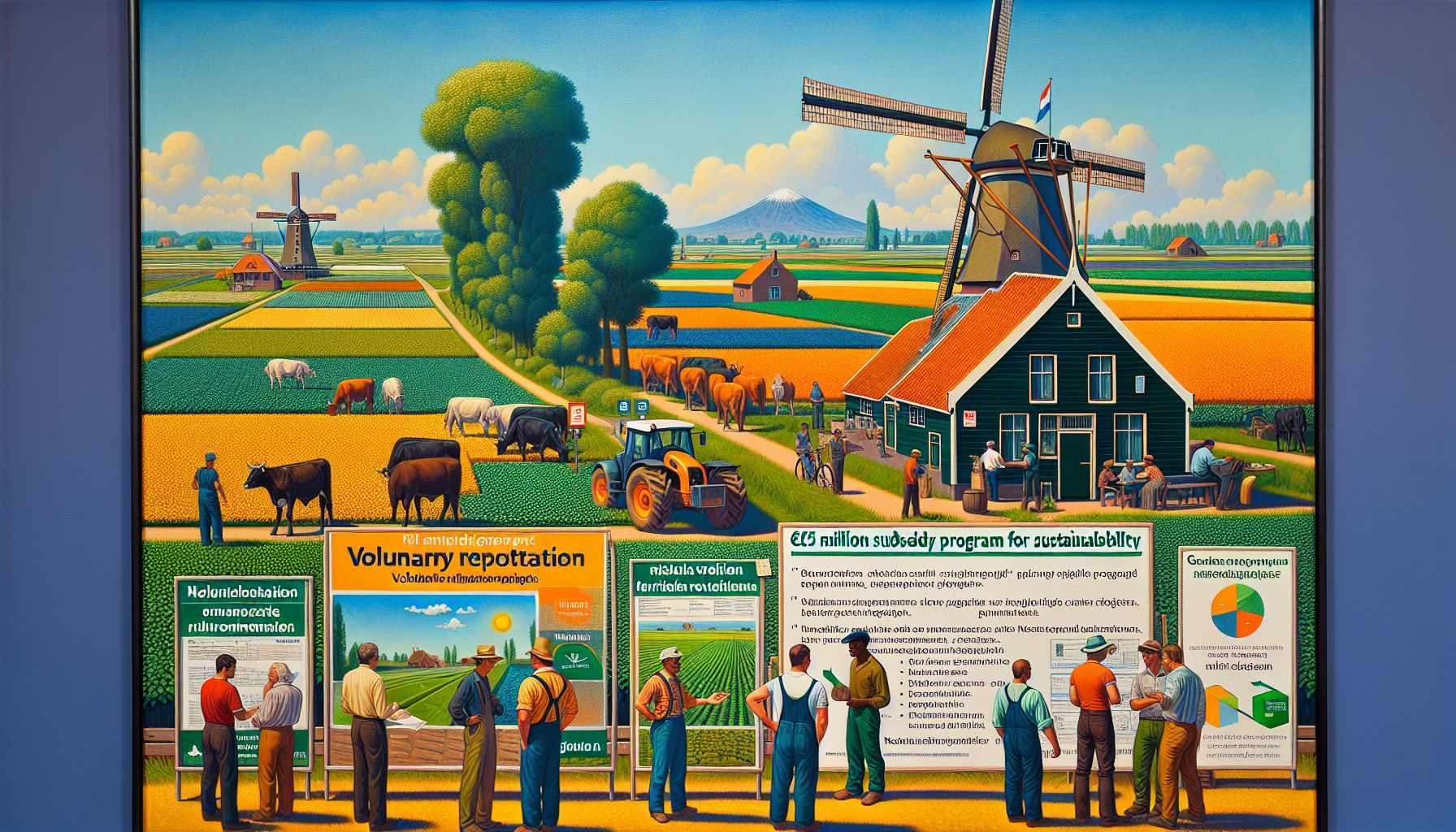Dutch Farmers Offered €175 Million to Relocate or Innovate for Sustainability

Netherlands, Tuesday, 3 September 2024.
The Dutch government launches two subsidy programs totaling €175 million to support farmers in reducing nitrogen emissions near nature reserves. €115 million is allocated for voluntary relocation, while €60 million supports innovative farming techniques, marking a significant step towards sustainable agriculture.
Introduction to the Subsidy Programs
The Dutch government has rolled out two major subsidy programs aimed at mitigating nitrogen emissions in highly stressed Natura 2000 areas. These initiatives are not only crucial for environmental sustainability but also for enhancing food security. The programs provide substantial financial support to farmers who either voluntarily relocate or adopt innovative farming techniques.
Voluntary Relocation Program
The first subsidy program, the Landelijke verplaatsingsregeling veehouderijen met piekbelasting (Lvvp), allocates €115 million to encourage farmers to voluntarily relocate their operations. This measure aims to reduce nitrogen deposition in overburdened Natura 2000 areas. Relocation can take place within the Netherlands or to another European Union country where nitrogen deposition is significantly lower. The first module of this program will be open from 2 December 2024 to 30 May 2025, while the second module will run from 6 January 2025 to 30 November 2027[1].
Innovation in Farming Practices
The second program focuses on innovation through the Subsidiemodules brongerichte verduurzaming stal- en managementmaatregelen (Sbv). It provides €60 million to livestock farms—specifically those with dairy cattle, pigs, and veal calves—that are willing to invest in proven technologies to reduce nitrogen emissions. Eligible technologies include advanced stall systems and air scrubbers. One key condition for receiving this subsidy is that the number of animals at the farm must not increase over the next five years. This program will begin accepting applications on 21 October 2024[1].
Benefits and Impact
These subsidy programs offer multiple benefits. They directly address the pressing issue of nitrogen pollution, which has significant environmental and public health impacts. By relocating or adopting innovative technologies, farmers can contribute to cleaner air and healthier ecosystems. Furthermore, these programs are part of a broader strategy to sustain the agricultural sector in the Netherlands, ensuring food security and economic stability. According to Eurostat, although agriculture comprises a small percentage of the national income, it is a highly specialized and essential contributor to Dutch exports[2].
Who is Behind the Innovation?
The programs are managed by the Dutch Ministry of Agriculture, Nature, and Food Quality, in collaboration with the Netherlands Enterprise Agency (RVO). The aim is to provide farmers with the necessary resources and incentives to make substantial environmental improvements. Both the innovation and relocation programs are part of the Dutch government’s broader commitment to sustainable agriculture, as outlined in various policy documents and supported by the European Union’s agricultural policies[1][2].
Conclusion
The introduction of these subsidy programs marks a pivotal moment in the Dutch agricultural sector’s transition towards sustainability. By providing significant financial support for both relocation and innovation, the Dutch government is taking proactive steps to mitigate nitrogen emissions and protect vital nature reserves. This approach not only ensures environmental sustainability but also secures the future of Dutch agriculture.

